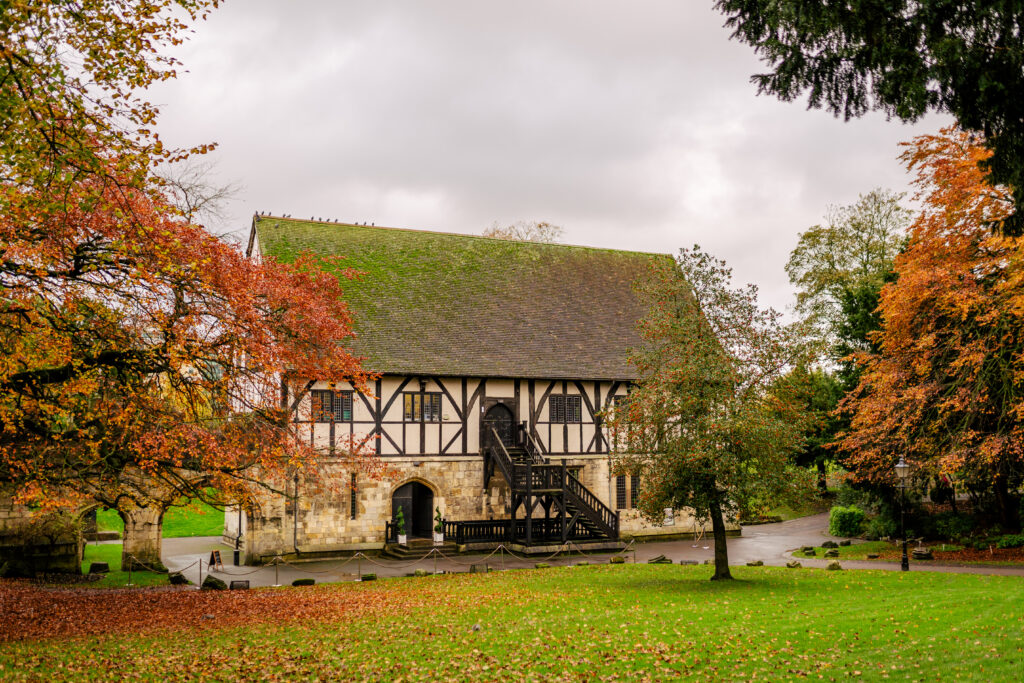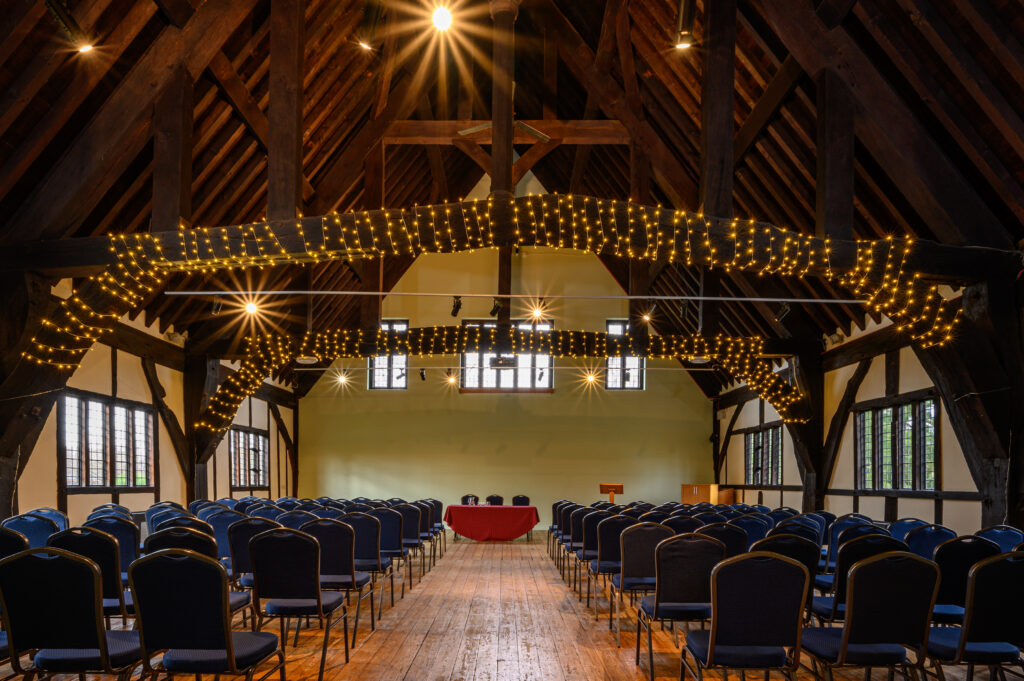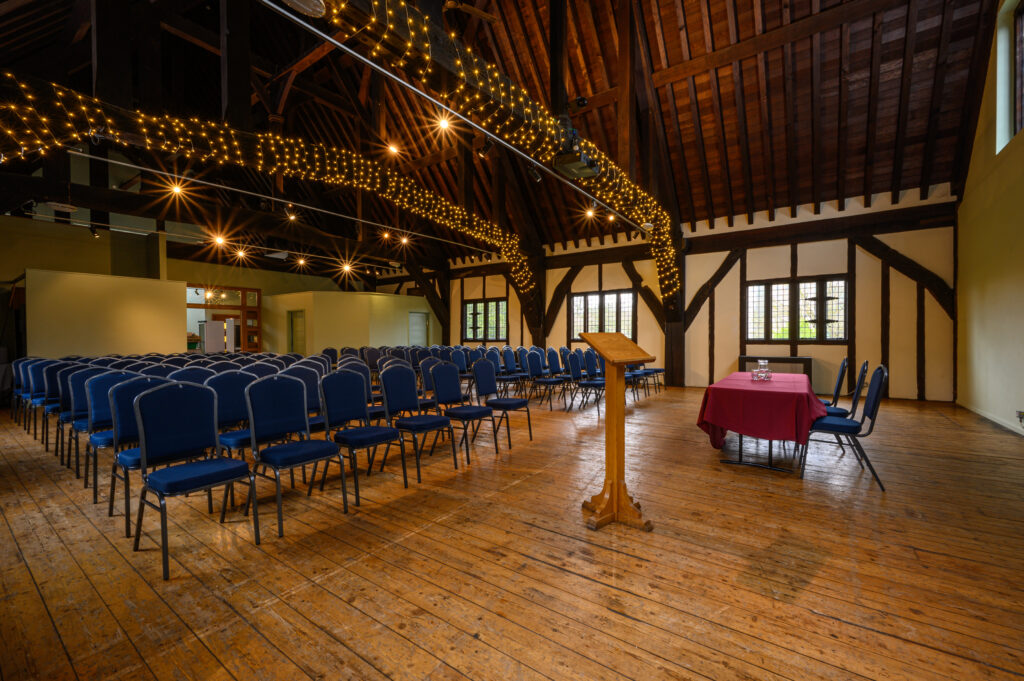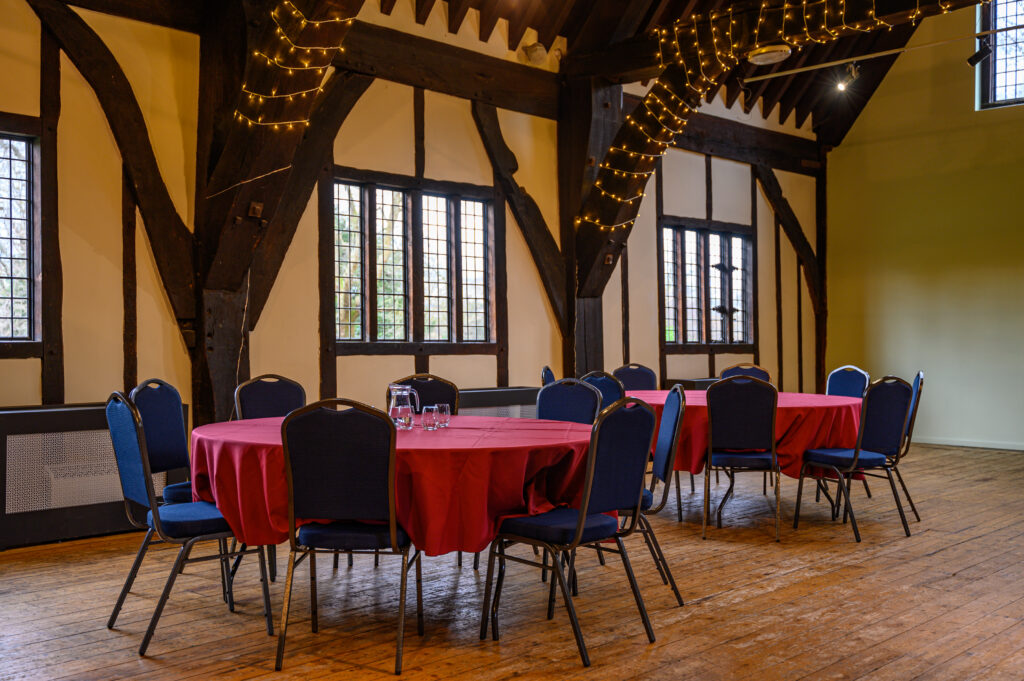
About COSIT
Established in 1993, COSIT is a biennial international conference series concerned with theoretical aspects of space and spatial information.
Where
The Hospitium, York, UK
When
Tuesday to Friday
22-25 September 2026
Call for Papers
We are delighted to announce that the 17th edition of the Conference on Spatial Information
Theory (COSIT) will be held in York, United Kingdom, from September 22nd to 25th,
2026!
Established in 1993, COSIT is a biennial international conference series concerned with theoretical aspects
of space
and spatial information. Spatial information theory examines how space and the external environment is
experienced,
represented, and communicated by humans, agents and machines.
With the goal of advancing the field of spatial information science and its bordering research areas, work
presented
at COSIT has explored how decoding and making sense of space shapes human agency in different contexts.
Spatial
information theory builds on a variety of perspectives on space; it advances computational models of spaces,
it
challenges consolidated methods in spatial analysis and Geographic Information Science and addresses how
cognitive
representations of space can be incorporated in formal models of space, at different scales, from geographic
to
personal space.
We welcome contributions from across any areas under the COSIT topics listed below. This COSIT’s edition
theme will
be Cognition and Flows, recognising the value of considering the cognitive foundations of human
behaviour and their
role in shaping large-scale geographic flows and interactions. Given the growing wealth in large, detailed
behavioural
and environmental data capturing the real world, never have we had such opportunity to close the gap
between our
understanding of human spatial behaviour and aggregated flows e.g., mobility, migration, inequalities,
economic
activity, spread of information, etc. In addition to any topics related to spatial information and cognition,
we
particularly encourage submissions that explore how cognition and behaviour shape the production of flows,
their
evolution, and ultimately influence the nature of spaces and societies.
COSIT Topics
COSIT is an intensive, single-track conference held over four days, featuring paper presentations and special
thematic sessions. It presents original research that spans a wide range of interdisciplinary topics, such as
spatial
cognition, wayfinding and navigation, spatial reasoning, place and space, human computer interaction,
intelligent
agents, urban analytics and their interactions with other disciplines, including spatial analysis, Geographic
Information Science, neuroscience, cartography, philosophy of mind, and computer science.
We welcome contributions covering conference-relevant topics, such as but not limited to:
- activity-based models of spatial knowledge
- behavioural and cognitive geography
- cartography and geographic visualisation
- causal and statistical models of space
- cognitive representations of geographic information
- cognitive aspects of urban and transport analysis
- concepts of spatial information, such as fields, objects, events, networks, and processes
- context awareness in physical and social spaces
- experienced and perceived spatial phenomena (e.g. liveability, walkability)
- explainable geospatial artificial intelligence (GeoAI) and spatially informed AI
- imagery data and spatial representation
- knowledge representation for space and time
- large-language models (LLMs) and foundation models (FMs), and their utility in spatial cognition and representation
- natural (human) language descriptions of space and place
- navigation, wayfinding, and mobility of sentient beings and robots
- ontology of space and time
- place and spatial information theory
- social and cultural organisation of space
- spatial agent-based simulations of human and social phenomena
- spatial and temporal language
- spatial cognition and neuroscience
- spatial decision support, impact of model design
- spatial information retrieval and encoding of geographic texts
- spatial learning and knowledge acquisition
- spatial storytelling and interactive narratives
- theory and practice of spatial and temporal reasoning
- validity of spatial information methods
Submissions
The COSIT 2026 review process is double-blind (excluding Journal Article or Book Presentation). All
submitted
manuscripts should omit authors’ names, affiliations, and any other identifying information. This may include,
but
is not restricted to acknowledgments, self-citations, and references to prior work by the author(s). Please
use
the
third person to identify your own prior work.
Submissions must adopt the LIPIcs LaTeX template (see below). For an accepted contribution to be published in the
conference proceedings (full papers, short papers) or included in the conference programme (short poster
papers,
journal
and book presentations), at least one of the paper authors must register by the registration deadline.
Full papers
Full research papers of 12-20 pages (including references) will be reviewed by three members of the programme committee.
High-quality
submissions will be accepted for presentation at the conference and will be published in the conference
proceedings.
Selection will be based on relevance to the conference theme and topics, scientific significance, novelty,
relation to
previously published literature, clarity of presentation, and interdisciplinary considerations. Manuscripts
must
describe original work that has not been submitted and published elsewhere.
Short papers
Short papers of maximum 7 pages (including references) present late-breaking and in-progress research, with less emphasis on mature
results.
All submissions will be reviewed by members of the programme committee. Accepted submissions will be selected
for
either oral or poster presentation at the conference. Authors of short papers accepted for oral presentation
will have
the option of having their papers included in the conference proceedings. All other accepted short papers will
be
shared in a non-archival digital repository.
Journal Article or Book Presentation
The conference will run a special thematic session dedicated to providing authors of recently published journal research articles or books on spatial information theory the opportunity to present and share their work in front of the COSIT audience. The article or book must have been published during the years 2024-2026 and should have not been presented at other conferences in the discipline (e.g. COSIT2024, AGILE 2025, ACM SIGSPATIAL 2025 or GIScience 2025). Submissions should include a citation and <1 page summary of the paper's or book's relevance to COSIT. It will be screened by the programme chairs with selection based on relevance to the conference theme and topics. Please submit material directly to cosit.uk@gmail.com.
Proceedings/Template
We offer Open Access publications for the refereed submission tracks in the Leibniz International
Proceedings in
Informatics (LIPIcs) Series. LIPIcs provides a LaTeX template for papers: visit this
link. Please make sure you use the latest version of the
template on that page.
Authors unfamiliar with LaTeX are encouraged to use Overleaf, an
online LaTeX editor, easy to use and that does not require any local installation. Overleaf comes with the
LIPIcs
template pre-loaded (can be found here).
Authors who want to use other text editors should stay close to the sample article’s layout for their paper
submitted
for review. Should their papers be accepted for publication, they must be converted to LaTeX using the LIPIcs
LaTeX
class and template.
Authors are responsible for the conversion of their papers to the LaTeX template.
Thematic Sessions
We invite proposals for thematic sessions to take place during the conference. These short sessions should
focus on a specific topic within spatial information theory or tie into the general conference topic of Cognition and
Flows and
can take on a range of formats (e.g., lightning talks, panel, discussion, hands-on activity, workshop).
Activities that can fit into a 45 minute or 1.5 hour long session are welcome. Thematic session organisers, speakers, and
participants need to be registered for the main conference to attend. To submit a proposal, please complete this form
by Friday, February 13th February 27th, 2026. Decisions will be made on March 6th, 2026. Please direct any questions
regarding thematic sessions to Dr. Clio Andris at clio@gatech.edu.
Doctoral Mentoring Programme
The COSIT community welcomes and supports the active participation of doctoral students. Following the
experience of the previous two editions of the COSIT doctoral mentoring programme, the Doctoral Mentoring
Programme at COSIT
2026 revolves around three different pillars for engaging with the COSIT community:
- Feedback: Choose from three different formats to present your doctoral research and receive constructive community feedback, based on your stage of study.
- Mentorship: Meet one-on-one with experienced international scholars in the field.
- Insights Presentation: Present your work as a lightning talk during a dedicated conference session.
Feedback Pillar
Based on your research experience and stage of study, choose how you wish to contribute and get feedback:
- Early Stage Proposal: Submit a proposal on how you are going to tackle a particular research problem or question, how you plan to use a specific method, etc.
- Later Stage Summary: Submit a summary of your ongoing PhD research. This is meant for ongoing work in the middle-to-late stages of preparation.
- Peer-Reviewed Submission: Submit your research for peer review, for either the full or short paper tracks. There will be a 'Best Student Paper' award (details to follow).
Mentorship Pillar
The doctoral mentoring chair will match the candidate with an experienced scholar who will provide feedback and discuss selected research issues in one-to-one, in person meetings.
Insights Presentation Pillar
One conference session at this year’s COSIT 2026 conference will be dedicated to doctoral lightning presentations, open exclusively to doctoral students. As COSIT is a single-track conference, the participant will present to all conference participants. This is a fantastic opportunity for early career researchers to present their work to a large audience of like-minded researchers.
How to Apply
To apply for the doctoral mentoring program, submit an Expression of Interest (EOI), up to 7 pages in length (maximum). Please use the LaTeX template provided for the conference to write your EOI. You will need to submit this as a single PDF document through the form below. The EOI must include:
- A brief biographical note, including contact data (name, affiliation, email address) and stage of your doctoral degree (e.g., First year, Final Year, etc.)
- A maximum one-page overview of your PhD research or proposed research.
- A maximum one-page overview of your PhD research or proposed research.
- Your chosen type of Feedback Pillar A, B, or C, for the selected option:
- Early Stage Proposal: Provide a detailed account of your research problem / issue, method, etc., and the specifics of what you wish to get feedback on.
- Later Stage Summary: Provide a detailed summary/proposal/plan of your PhD research, with enough specifics to enable specific feedback on it.
- Peer-Reviewed Submission: Provide the submitted abstract of your paper for peer review and describe how this paper fits into your overall PhD research goals.
All submitted EOIs will be ranked but not formally peer-reviewed. Accepted EOIs will be distributed among the mentees and their COSIT 2026 mentors as a single PDF document. Doctoral mentees will also be encouraged to publish their one-page PhD topic overviews (item 2 above) in a document that will be shared with all conference attendees and archived via the Open Science Framework with the volume DOI.
Please complete this form to submit your Expression of Interest (EOI) to the Doctoral Mentoring Chair. Any questions regarding this programme can be sent to Dr. Crystal Bae at cbae@uchicago.edu.
Important Dates
Note: all the COSIT 2026 submission deadlines follow the AoE (Anywhere on Earth) time zone!
Full paper submission: February 20, 2026 February 27, 2026
Full paper decision: April 10, 2026
Short paper submission: April 17, 2026
Short paper decision: May 15, 2026
Thematic sessions proposals: February 13, 2026 February 27, 2026
Thematic sessions decision: March 6, 2026
Doctoral mentoring programme submission: April 30, 2026
Doctoral mentoring programme decision: May 15, 2026
Journal article / book presentation submission: May 15, 2026
Journal article / book presentation decision: May 29, 2026
Registration
Coming soon!
York
York, a historic city nestled in northern England, boasts a rich history that stretches back to its Roman origins. Its urban landscape features the Gothic grandeur of York Minster, the narrow streets of the Shambles, and remnants of Roman walls. It is an active urban hub of commerce, culture, and education, with a high density of entertainment venues. Its compact, walkable layout means it is regularly featured as one of the best cities to live in the UK.
Conference Venue
The Hospitium
The Hospitium is a 14th century two-storey building set within the beautiful York Museum Gardens, overlooked by the striking ruins of the Grade 1 listed St. Mary’s Abbey.
Transportation
While York does not have an international airport itself, it is located on the East Coast Mainline of the UK rail network and continues to be a major rail hub. There are frequent, direct trains to London (~2hrs), Leeds (30mins), and Manchester (~1.5hrs). Trains from Manchester Airport are direct (hourly), while connections from Leeds-Bradford Airport and London Airports require an additional train connection. The centre of York is very old and compact, and there are heavy limits on vehicular movement, thus making your experience pleasant and enjoyable.
Accommodations
York is a popular tourist city and has many hotels available within a walking distance to the conference
venue. While York is not the cheapest city in the UK for hotels, there are a variety of options available. The
map below shows some possibile accomodations around the conference venue. Click on View larger map to see the location of the conference venue (blue pin) and the walking
distance to each listed accomodation. We highly suggest that you book a hotel room earlier than later as
September can be a busy month in York.
Visa Information
Please visit this website to check if you will need a UK visa to attend the conference. Please contact us if you require a letter of invitation for the UK visa application.
Organizing Committee
Local Organizing Committee
Programme Chairs
Programme Committee
Hoda Allahbakhshi, University of Zurich
Clio Andris, Georgia Institute of Technology
Nathalie Aussenac-Gilles, Centre national de la recherche scientifique (CNRS)
Crystal Bae, University of Chicago
Michela Bertolotto, University College Dublin
Stefano Borgo, Consiglio Nazionale delle Ricerche
Boyan Brodaric, Natural Resources Canada
Vanessa Brum-Bastos, University of Canterbury
Guoray Cai, Pennsylvania State University
Gilberto Camara, Instituto Nacional de Pesquisas Espaciais
Adrijana Car, Fachhochschule Kärnten
Christophe Claramunt, Naval Academy Research Institute
Eliseo Clementini, University of Aquila
Andrew Crooks, State University of New York at Buffalo
Gamze Dane, Eindhoven University of Technology
Leila De Floriani, University of Maryland
Stef De Sabbata, University of Leicester
Géraldine DEL Mondo, Laboratoire d'Informatique, de Traitement de l'Information et des Systèmes
Urska Demsar, University of St. Andrews
Somayeh Dodge, University of California
Heshan Du, University of Nottingham Ningbo China
Matt Duckham, Royal Melbourne Institute of Technology
Sara Fabrikant, University of Zurich
Zoe Falomir, Umea University
Gabriele Filomena, University of Liverpool
John G. Stell, University of Leeds
Mark Gahegan, University of Auckland
Amy Griffin, Royal Melbourne Institute of Technology
Christopher Hilton, Technische Universität Berlin
Arvid Horned, Umea University
Yingjie Hu, State University of New York at Buffalo
Carolynne Hultquist, University of Canterbury
Toru Ishikawa, Toyo University
Krzysztof Janowicz, Universität Vienna
Armand Kapaj, University of Zurich
Markus Kattenbeck, Technische Universität Wien
Carsten Keßler, Bochum University of Applied Sciences
Peter Kiefer, ETH Zurich
Alexander Klippel, Wageningen University and Research
Manolis Koubarakis, National and Kapodistrian University of Athens
Christian Kray, University of Münster
Saskia Kuliga, Deutsches Zentrum für Neurodegenerative Erkrankungen
Rui Li, State University of New York at Albany
Bernd Ludwig, Universität Regensburg
Maria M. Hedblom, Universität Bremen
Ed Manley, University of Leeds
Grant McKenzie, McGill University
Sara Migliorini, University of Verona
Franz-Benjamin Mocnik, Paris Lodron Universität Salzburg
Antoni Moore, University of Otago
Reinhard Moratz, Westfälische Wilhelms-Universität Münster
Jeremy Morley, Hon Prof, University College London
Till Mossakowski, Universität Osnabrück
Gerhard Navratil, Technische Universität Wien
Eva Nuhn, Universität Augsburg
Ross Purves, University of Zurich
Daniel R. Montello, University of California
Tumasch Reichenbacher, University of Zurich
Kai-Florian Richter, Umea University
Johannes Scholz, Paris Lodron Universität Salzburg
Angela Schwering, University of Münster
Tabea Sonnenschein, Utrecht University
Emmanuel Stefanakis, University of Calgary
Kathleen Stewart, University of Maryland, College Park
Henrikki Tenkanen, Aalto University
Nico Van de Weghe, Universiteit Gent
Judith Verstegen, Utrecht University
Zhangyu Wang, University of Maine System
René Westerholt, TU Dortmund
Stephan Winter, University of Melbourne
Qi Ying, University of Zurich
Donatella Zingaro, University of Zurich
Chenyu Zuo, Universität Augsburg
Sponsors
Coming soon!
Contact
If you have any questions, please don’t hesitate to contact the organizing committee using the email address or the form below.
Address
Museum Gardens, York YO30 7DR, United Kingdom
 COSIT 2026
COSIT 2026


